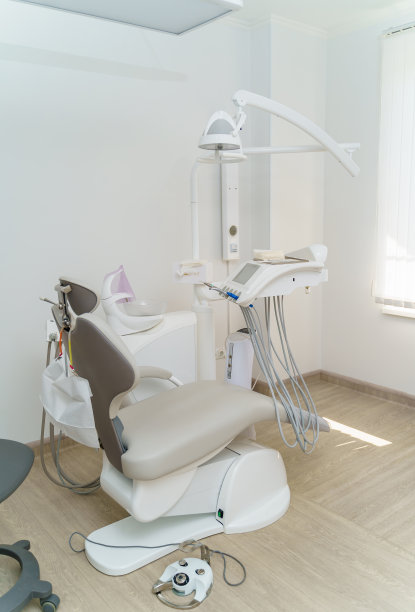Summary: Root canal treatment is a vital procedure aimed at preserving teeth that exhibit decay or infection. To ensure both safety and effectiveness during the treatment, several precautions must be taken. This article will explore essential aspects to consider, including thorough patient evaluation and history taking, the importance of anesthetic techniques, infection control protocols, and appropriate aftercare instructions. By adhering to these precautions, dental professionals can enhance the treatment experience while significantly reducing complications, ensuring patients benefit from effective root canal therapy. We aim to provide detailed insights that both patients and dental practitioners should keep in mind.
1. Thorough Patient Evaluation and History

Before undergoing root canal treatment, a comprehensive patient evaluation is paramount for ensuring a safe experience. This involves gathering detailed medical histories, identifying any existing medical conditions, and understanding medication allergies. A detailed assessment can reveal conditions like heart disease or diabetes that may affect treatment outcomes.
Consultation regarding the patients dental history is equally important. Past dental issues, previous treatments, and any discomfort or symptoms can offer insights into the tooths current state. This information aids in crafting a tailored treatment plan that considers the individual’s circumstances effectively.
Radiographic examinations, such as X-rays, play a crucial role in this step, allowing dental professionals to visualize the root structure and assess any infection below the surface. By employing these thorough evaluation techniques, practitioners can significantly reduce the risk of complications.
2. Importance of Anesthetic Techniques
Adequate anesthesia is vital during root canal procedures to ensure a pain-free experience for the patient. Dentists must carefully select the type of anesthetic based on the procedures complexity, the patients anxiety levels, and overall health. Local anesthetics, such as lidocaine, are commonly employed to numb the affected area effectively.
Moreover, understanding the patient’s pain threshold and previous experiences with dental work can help in customizing the anesthetic approach. In cases of severe anxiety, dentists may also consider sedation methods, which help the patient feel calmer and more comfortable.
Once the anesthesia is administered, dentists should thoroughly monitor the patient’s response. Providing reassurance helps enhance the patients comfort, making it imperative for dental professionals to communicate openly about the procedures progress and any sensations the patient may experience.
3. Infection Control Protocols
Infection control is another critical component in ensuring safe and effective root canal treatment. Proper sterilization of dental instruments and adherence to infection control guidelines are essential to minimize the risk of postoperative infections. This involves using autoclaves for sterilization and wearing appropriate personal protective equipment (PPE) during procedures.
Furthermore, maintaining a clean and sanitized working environment is also vital. The use of barriers, such as disposable covers for dental chairs and equipment, helps prevent contamination. Regular hand hygiene practices should be implemented before and after each patient’s treatment.
Post-treatment infection control measures must also be communicated to the patient. This may include guidance on ways to maintain oral hygiene and monitor for any signs of infection, ensuring they are well-informed about their healing process.
4. Appropriate Aftercare Instructions
The success of root canal treatment heavily relies on proper aftercare. Dental professionals must provide clear, detailed aftercare instructions tailored specifically to the individual patient’s procedure, helping minimize complications. This includes advice on managing discomfort, swelling, and expectations for recovery time.
Patients should be informed about any warning signs that may indicate complications, such as prolonged pain, fever, or unusual swelling, encouraging them to seek immediate care if these occur. Furthermore, scheduling follow-up appointments is crucial for monitoring the tooths healing process and assessing the need for additional treatments, such as filling or crown placement.
Additionally, discussing dietary modifications post-treatment can help ensure successful recovery. Gentle foods and fluids should be recommended for a few days, and avoiding hard or sticky foods can prevent unnecessary strain on the treated tooth.
Summary:
The precautions outlined in this article are crucial for ensuring a safe and effective root canal treatment, benefiting both the dentist and patient. Comprehensive patient evaluations, effective anesthesia, strict infection control protocols, and adequate aftercare all play essential roles in minimizing risks and complications during the procedure.
By prioritizing these precautions, dental professionals can enhance patient care, ensuring a smoother, more pleasant experience for everyone involved. We encourage all patients to be active participants in their dental health journey.
This article is compiled by Vickong Dental and the content is for reference only.
Vickong Dental
Vickong Dental is a large medical group established in Hong Kong in 2008 by professors from well-known medical universities in Guangdong and Hong Kong, as well as medical doctors from key national '985' universities (including Master's supervisors and senior professors). The chain of branches brings together expert dentists with PhDs and Master's degrees from Hong Kong and Mainland China, committed to providing high-quality dental treatment.
"Vickong Dental Practices the University Motto of 'Healing and Serving Society,' with a Stable Operation for Sixteen Years. It Has Been honored with Hong Kong Enterprise Leaders's Choice,' and is a Global Trusted Implant Center for the Nobel Implant System. Recommended by Hong Kong Metro Broadcast and Guangdong Television, it Serves Customers from Over Thirty Countries and Regions, Gaining the Trust and Favor of Citizens from the Guangdong-Hong Kong-Macau Greater Bay Area and Surrounding Cities.

Thousands of customers' unanimous praise
The most recognized and highly recommended dental service by customers in the Guangdong-Hong Kong-Macau Greater Bay Area
We Ensure You Receive Detailed Care and Attention Here
Hong Kong standards, Shenzhen prices, Your Trusted English-speaking dentists

Vickong Dental Medical-Grade Instrument Disinfection Process
Vickong Dental Medical-Grade Instrument Disinfection Process

Vickong Dental Chain: A Warm and Comfortable Environment for Treatment






Appointment Hours

Q&A
Why choose Vickong Dental?
Vickong Dental practices the university motto 「Medicine to Benefit Society」, with each branch bringing together highly qualified dentists with doctoral and master’s degrees from Hong Kong and the Mainland, and has maintained seventeen years of steady operation。Recipient of 「2024 Hong Kong Enterprise Leaders Brand」, 「2025 Hong Kong Enterprise Leaders Brand」, a Nobel Biocare Global Trusted Implant Center, and a brand recommended by Metro Radio Hong Kong and Guangdong TV。
To date, we have served customers from more than thirty countries and regions,earning exceptionally high word-of-mouth recognition and trusted recommendations from residents across the Guangdong-Hong Kong-Macao Greater Bay Area and surrounding cities
We have eight major branches in Zhuhai、Shenzhen,and a consultation and service assurance center in Hong Kong,so you can book a free consultation at any time for any questions,which is very reassuring.
If I do not accept the quotation after the CT scan, will I be charged??
No! As long as the actual treatment has not started, you will not be charged any fees.
Will there be any additional charges during the treatment process?
No, there won’t be any additional charges. Before treatment begins, we will clearly explain the treatment plan and its corresponding fees. Only after the patient agrees and signs the consent form will we proceed with the dental service.
Can I pay in Hong Kong dollars?
Yes. Vickong Dental accepts payment in Hong Kong dollars. The amount will be converted based on the exchange rate of the day, and the applicable rate will be clearly communicated to you in advance.
Can I reschedule my appointment at any time?
Yes. Please contact us via **WeChat** or **WhatsApp** as early as possible, providing your original appointment time and details, along with your preferred new date and time slot for rescheduling.













